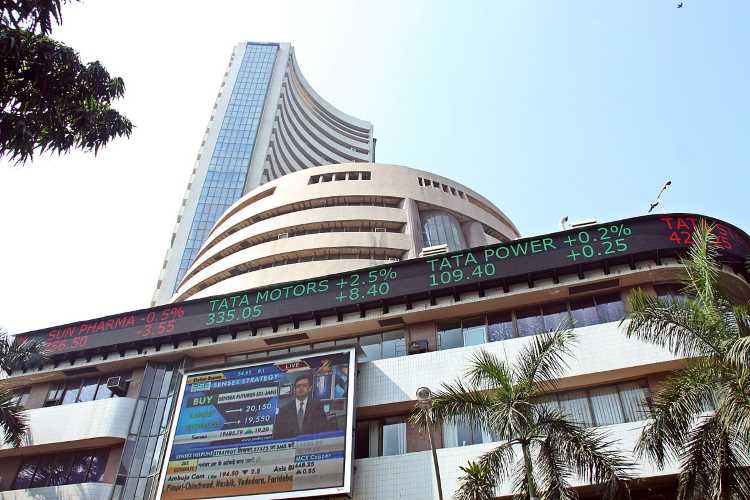
Globally, financial intermediation has observed a revolutionary change since the 1980s, by altering the process of financing mainly from the banks to the markets. This has been part of the broader liberalisation agenda which has systematically encouraged the private sector and discouraged the public sector.
It must be remembered that the IMF had regulated all forms of current account payments by 1945. Current account flows largely relate to financial transactions linked to the process of transfer of physical assets. These include: a) payments for merchandise trade, b) international services, c) investment incomes and payments, d) remittances, and e) official government transfers. Until the late 1970s, the prime mode of capital account flows happened in the form of official development assistance by developed countries.
READ: Post-Covid economy: Lessons for India from global manufacturing hubs
Meanwhile, the other mode of financial flows, the movement of capital itself, had started to gain prominence from the mid-1970s and its pace got accelerated in the 1980s. When private capital moved from surplus to deficit countries, they needed countries to have open capital accounts with assured conditions for free flows. By the mid-1980s there was also a surge in FDI by multinational companies. The opening up of global capital markets and the establishment of stock markets around the world accelerated after countries began adopting market economy model and liberalised trade flows under the WTO binding rules.
The world today is more financially integrated than ever before with inter- and intra-firm transactions made through multiple financial instruments, which criss-cross multiple borders. Unlike the current account flows, a significant portion of capital account flows are routed through the speculative mechanism of stock markets. The latter are often found to be not in concurrence with the real sector’s needs for financing productive investments.
READ: Can India match Chinese success in post-Covid global economy?
Capital account flows involve multiple listing of securities in several countries and cross-country hedging and portfolio diversification, with no inter-governmental mechanism to track the flows. This makes it increasingly complex for national governments to track and understand the ultimate investor or beneficial owner of investments coming into their economies. The IMF gives country-wise balance of payments data and the UNCTAD provides FDI flows. However, there are no multilateral bodies giving data on bilateral investment flows, especially on mergers and acquisitions, on a times series basis, to make a correct assessment of changing ownership patterns.
The available sources of detailed investment flows are being sold for a price by a few private consultant firms like Bloomberg and others with shareholder-driven governance and a very high probability of oversight. ¬¬ Thus, while we have ample inter-governmental data on international real economy transactions (through the current account), there is a lack of similar data for international financial transactions. This creates a fundamental imbalance – while governments are able to monitor and regulate activities in the production sphere, they are unable to do the same for the financial side.
India has to be extremely vigilant and cautious, particularly about bilateral investments operated through the stock markets. Any private firm failure in the critical sectors may become subject to takeovers and can pose national security challenges. This is because unsolicited investments are difficult to track in the maize of cross-border holdings.
READ: Covid-19: An opportunity for battered banks to reinvent themselves
It is clear that the economic crisis caused by the COVID-19 outbreak will make companies vulnerable to foreign takeovers. The pandemic has led to declines in the stock values of several Indian companies. It has been reported that this opportunity may be sought to be used by big Chinese funds such as the Industrial and Commercial bank of China and the China Investment Cooperation. They are looking for investment opportunities in India.
The government has to extend all possible support to the private sector firms, especially SMEs, during the COVID-led recession. At the same time, in order to prevent foreign takeovers of firms in strategically important sectors, it is imperative for India to seek transparency of foreign investment participation in private firms. We cannot achieve this without screening foreign investments. At present, the Competition Commission of India cannot adequately address situations where investors cannot be tracked to a particular firm.
Therefore, like many countries vetting all foreign investment deals (Australia, US, European nations, Russia, South Africa and South Korea), India should also adopt FDI screening measures. In particular, India should create a separate evaluation for all mergers and acquisitions (M&As) through the stock markets and other investment channels.
READ: Coronavirus impact: Indian economy may prove doomsayers wrong
It is in this backdrop that the tightening of investment policy by the Government of India on April 18, 2020 has to be complimented. The latest Press Note on FDI (Press Note 3, 2020) makes government approval mandatory for all foreign investments from all countries with which India shares a land border. Until we have an inter-governmental mechanism for tracking investment flows to their beneficial owners, such national FDI policy measures become essential to pre-empt national security threats and safeguard Indian investments in strategic sectors.
There is an urgent need to issue criteria for identification of strategic sectors and to expand the screening to all countries, like several countries have already done. India’s priorities should be on livelihood security and data security. Additionally, India should also include a criterion to protect domestic companies having high technological and economic value in India and overseas markets, or those bringing high growth potential to their related industries.
(Murali Kallummal is Professor, Centre for WTO Studies, Indian Institute of Foreign Trade. Smitha Francis is Consultant, Institute for Studies in Industrial Development.)
Murali Kallummal is Professor, Centre for WTO Studies, CRIT, IIFT, New Delhi. Views are personal.

